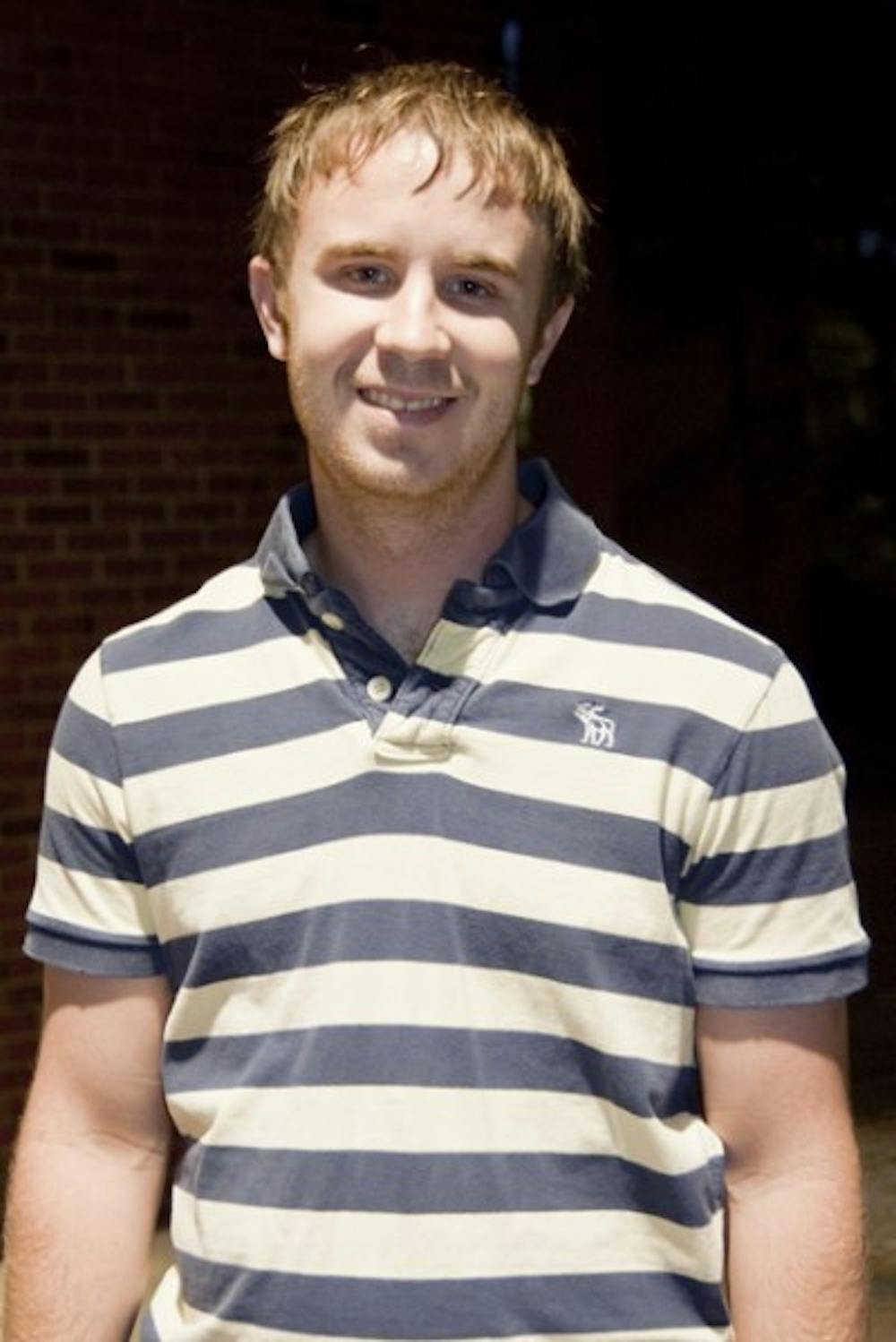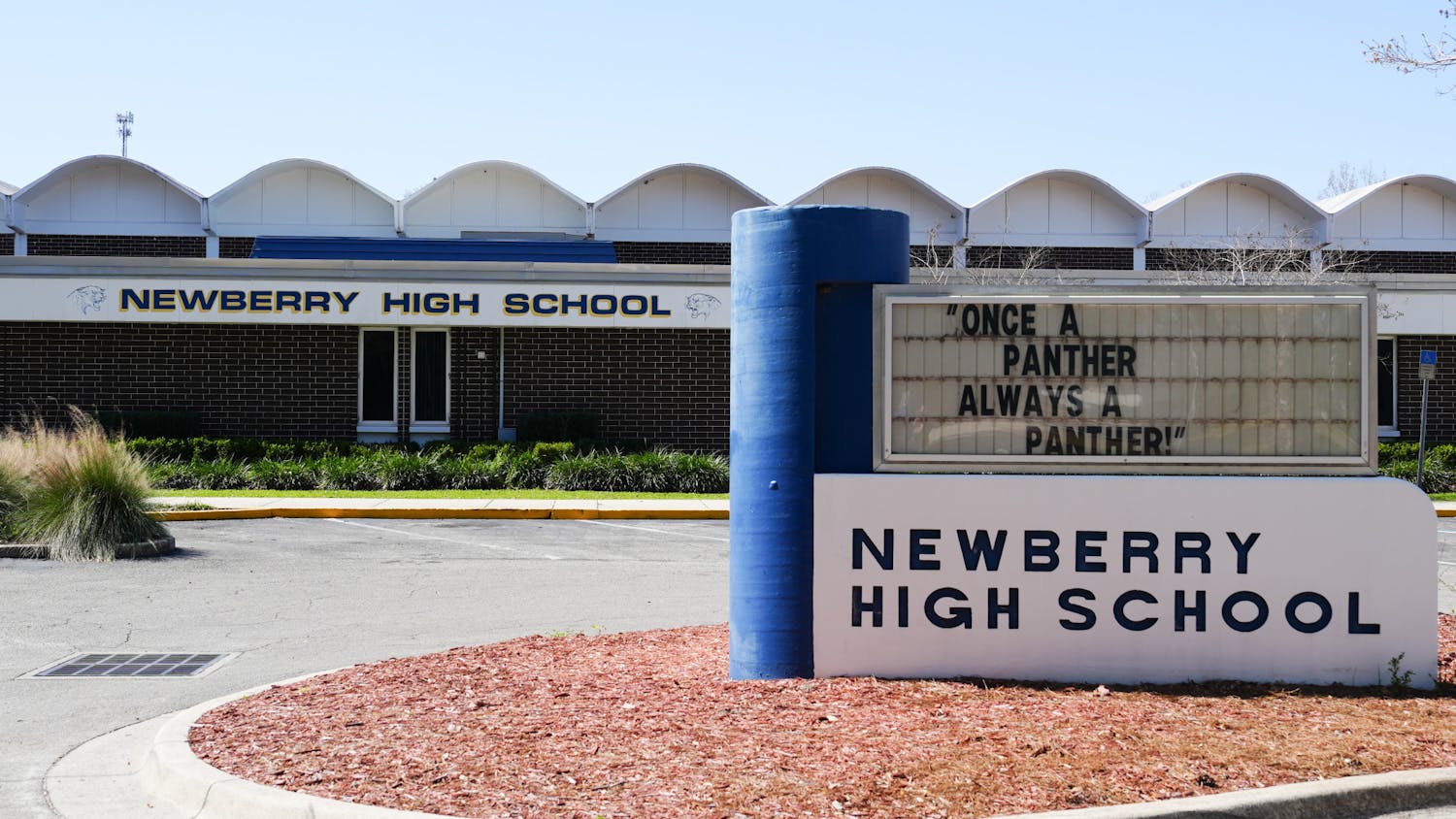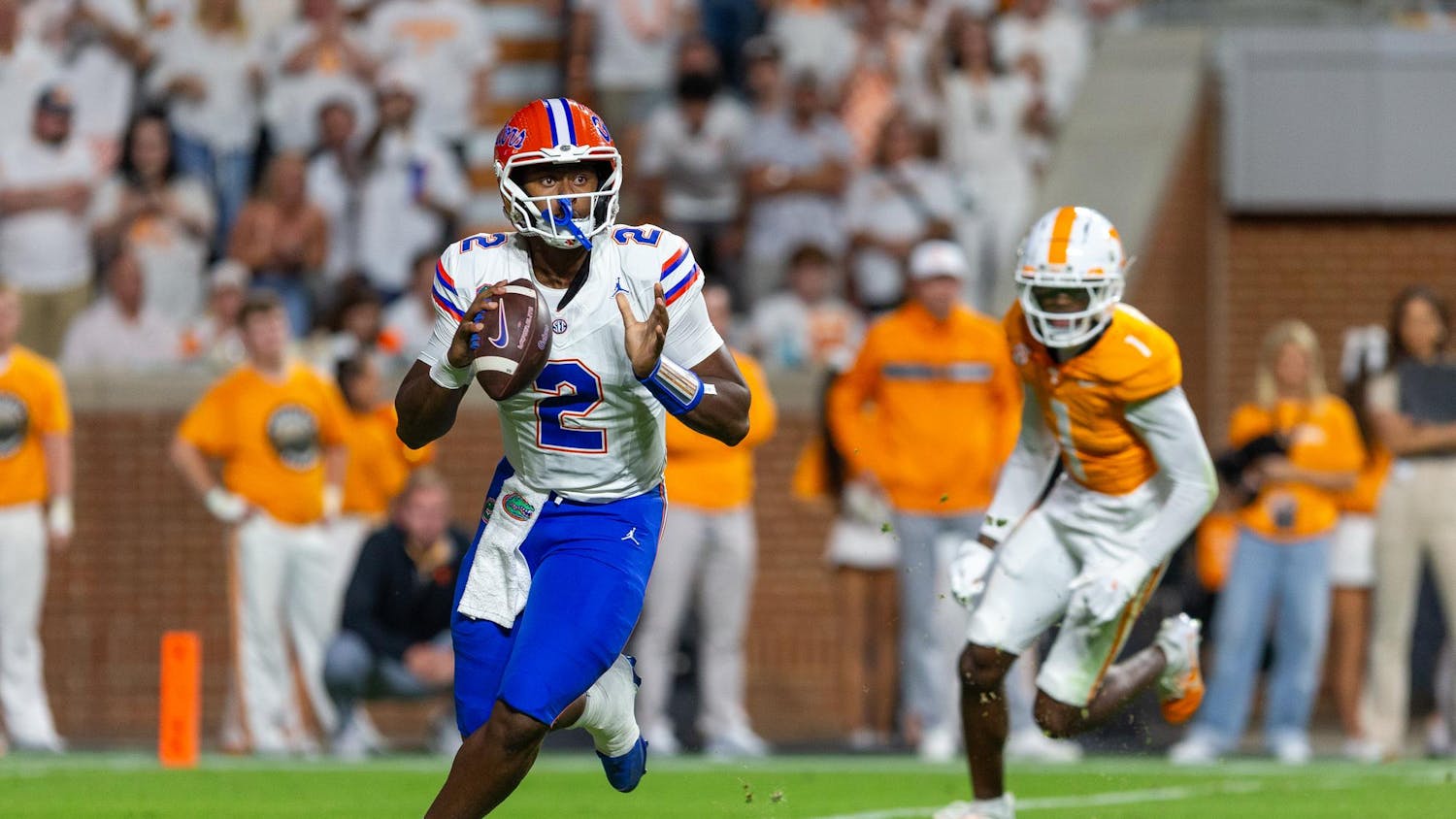It’s 4 p.m. on a Monday when Bret Denney gets a call from his boss. One of the pigs is in serious trouble.
A veterinary student accidentally castrated a pig with a hernia earlier in the day, and now its intestines are falling out. This happens sometimes when a pig has a weak abdominal wall.
The pig has no name. In agriculture, they never do. It would be too hard to keep track of all the animals. Denney knows the pig as No. 176 by the notches on the ear.
Denney has little time to do something he has never done before. He stuffs the red, mushy intestines in as best he can back up through the tiny laceration and stitches it up. It takes almost 20 minutes because the hole is so small.
Mondays, Wednesdays and Fridays this semester always start the same. At 7 a.m., Denney leaves the two-room swine-unit apartment he shares with his good friend Parker Capparelli, also from Dade City. They’re like any other college kids living independently, except they’re in charge of caring for about 450 animals.
The unit is a collection of wooden buildings about seven minutes away from UF’s main campus. Hundreds of pigs, 50 sows, 30 chickens, four boars and three students call it home.
Denney puts on one of the pairs of rubber boots that are always outside the front door. He can smell the pigs. He can hear the boars. It’s feeding time.
He checks out the mothers and litters to make sure everyone wakes up. If a baby doesn’t wake up when the food is there, it’s usually a sign something is seriously wrong. Today, fortunately, the pigs are fine.
The boars, since there are so few of them, have names. Denney says, “Hi,” to Goliath and Daddy. There’s also Will, a 600-pound, Oreo-colored pig who is the only Hampshire in the unit. The rest are Yorkshires, the typical pale, pink pigs.
Denney is partially responsible for feeding the pigs three to four tons a week. The entire process takes about 30 minutes each morning and afternoon, as long as there’s nothing else to do.
Almost every Monday the veterinary students come to UF’s Institute of Food and Agricultural Sciences swine-teaching unit to work with the pigs. Some of them look nervous, as if they’re the first live animals they have handled.
Denney envies them. The pigs do not intimidate him because he has enough experience. He has always wanted to be a vet. Always. But he’s worried that just wanting it won’t be enough.
Denney was 4 years old when he showed his first animal for the 4-H Club at the Pasco County Fair in his hometown in Dade City — the type of town where everybody knows everybody. Gossip travels fast, but once people know you, they trust you. Denney is trusted there.
Kids start out showing chicken and bunnies just for fun. At age 8 he started with pigs, buying them young, raising them for six months or so and showing them competitively. Steers and heifers came a few years later. Denney eventually saved enough money selling animals at the fair to start his own herd of about 30 cows.
To be a good showman, you need lots of practice, he said.
“You’re showing the judge your animal; you’re not showing yourself.”
To practice showing, Denney would stand in his backyard with a pig or a cow and one of his parents would be a judge. It’s important to always keep the animal in the judge’s eyesight, so he would pretend a riding lawn mower was the animal, always moving it to keep it in his dad’s sight.
In high school, Denney started to work for Dr. Chet Taylor, a vet who cared for both large and small animals. Taylor had attended UF 30 years before and lived in the swine unit.
For the next five years, Denney learned the ins and outs of veterinary medicine. The vet practice became a second home, and the staff became like family. In between assisting in surgery, taking blood and cleaning teeth, he became confident.
Denney also realized that working with the animals was the easy part. Their owners were another story, especially if the animals were theirs.
“People are much more laid back when it comes to steer and pigs than to cats and dogs,” he said. “It’s a business. I like that.”
So when it came time to leave the practice or stay for another two years of community college, he knew he had to stay. He couldn’t pass up the experience.
He’s got to work on his grades. The classes at Pasco-Hernando Community College were a joke compared to his first UF classes. This is his second crack at organic chemistry, and he is studying earlier and more often.
“There are lots of kids with as much experience as me and probably better grades,” Denney said.
His heart is not set on UF. He will go anywhere that takes him.
One day he wants to move back to Dade City, take over Taylor’s practice and be the town vet.
If he doesn’t get in, he can earn a master’s degree or Ph.D. But it’s not time to think about that now.
He’s got to study.






